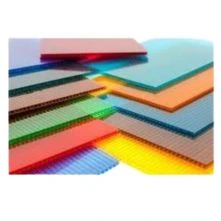Get A Quote
BIS Certification for Polycarbonate IS 14434: 1998

Polycarbonate is a versatile and
high-performance thermoplastic polymer known for its strength, transparency,
and impact resistance. It is widely used in a range of industries, including
automotive, electronics, construction, and consumer goods. In the automotive
sector, Polycarbonate is used for manufacturing headlamp lenses, dashboards,
and safety glazing due to its durability and clarity.
In electronics, it is found in electrical enclosures, durable casings, and screens. In construction, Polycarbonate is used for roofing sheets, windows, and partitions, providing both strength and transparency. Consumer goods such as eyewear lenses, mobile phone casings, and optical discs also benefit from Polycarbonate’s resilience and clarity. The BIS certification under IS 14434:1998 ensures that Polycarbonate meets stringent quality standards, guaranteeing its safety, reliability, and suitability for these diverse applications
Introduction
As part of the Quality Control Order 2023, the DPIIT has made it mandatory for Polycarbonate to be certified under IS 14434:1998, effective from January 1, 2024. This regulation is designed to standardize the manufacturing and sale of Polycarbonate in India, ensuring that only certified products are marketed across the country.
Why BIS Certification is Necessary for Polycarbonate
BIS certification for Polycarbonate is crucial for several reasons. Firstly, it guarantees that the product adheres to the high-quality standards specified under IS 14434:1998, ensuring it is suitable for diverse industrial and commercial applications. Secondly, certification ensures compliance with the Bureau of Indian Standards Act, 2016, helping manufacturers avoid legal penalties associated with non-compliance. Lastly, the ISI mark instills confidence among consumers and industries, assuring them that the Polycarbonate is safe, reliable, and of consistent quality, making it a trusted material for a wide range of uses.
Also Read
BIS QCO for Polycarbonate
Overview of Indian Standard IS 14434:1998
IS 14434:1998 outlines the key quality requirements for
Polycarbonate, ensuring it meets the necessary standards for industrial use. It
specifies the required chemical composition, including the molecular structure
and purity levels of Polycarbonate. The standard also defines the acceptable
physical properties, such as transparency, heat resistance, impact resistance,
and tensile strength, which are critical for ensuring the material’s durability
and performance. Additionally, it covers the mechanical properties, including
tests for flexibility, hardness, and dimensional stability. Finally, the
standard provides clear guidelines on packaging, storage, and labeling to
ensure safe handling and transportation of Polycarbonate products. These
comprehensive standards ensure that Polycarbonate meets the high-performance
requirements demanded by various industries
Process for BIS Certification for Polycarbonate
The certification process for Polycarbonate involves the
following steps:
- Application Submission: Submit an application along with
necessary documentation to BIS.
- Documentation Review: BIS reviews the submitted documents to
verify compliance with IS 14434:1998.
- Factory Inspection: BIS officials visit the manufacturing
facility to inspect production processes, quality control measures, and
compliance with safety standards.
- Sample Testing: Product samples are tested in BIS-approved
laboratories to ensure conformity to the standards specified in IS 14434:1998.
- Certification Grant: After successful inspection and testing, BIS grants the ISI mark, allowing manufacturers to label their Polycarbonate products as compliant with IS 14434:1998.
Documents Required for BIS Certification
To apply for BIS certification, manufacturers need to submit the following documents:
● Application form
● Manufacturing process details
● Quality control plan
● Test reports from BIS-approved laboratories
● Factory layout and equipment details
● Proof of business registration
● Product specifications and technical details
● Declaration of conformity to Indian standards
Additionally, manufacturers may be required to provide proof of compliance with environmental and safety regulations, depending on the specific type of product being certified.
BIS Documents For Domestic and Foreign Manufacturer Check
BIS ISI Mark Certification Costing And Timeline
To Know The Process in Detail, Please Visit:
Under BIS Registration Products ISI and CRS
Conclusion
BIS certification for Polycarbonate under IS 14434:1998 ensures
that the product complies with stringent industry standards for safety,
quality, and performance across key sectors like automotive, electronics,
construction, and consumer goods. This certification gives manufacturers the
confidence to market their Polycarbonate products, knowing they meet all
regulatory and safety requirements. EVTL India offers end-to-end support
throughout the BIS certification process, including documentation preparation,
compliance management, and regulatory submissions. By partnering with EVTL
India, manufacturers can streamline the certification process and ensure their
Polycarbonate products meet the highest standards. Contact EVTL India today for
expert guidance on obtaining BIS certification for Polycarbonate and other industrial
products.
Free Call Back
Latest News & Update
📅 BIS Critical Component List (CCL) Updates for Solar PV Modules
🕒 BIS Fee Concessions for MSMEs and Startups | EVTL India
📅 Guidelines for Implementation of Essential Requirements for Security of CCTV
🕒 Omnibus Technical Regulation (OTR) Amendment Order, 2025
🕒 Extension of Timeline for Filing Annual Returns by Battery Producers
📅 Extension of Timeline for Filing Quarterly and Annual Returns for E-Waste
🕒 Extension of Concurrent Running Period for IS 302-1: 2008 and IS 302 (Part 1): 2024
🕒 BIS Guidelines for Grant of Licence (GoL) | EVTL India
📅 CPCB Guidance on filing of Application, Fees and more
🕒 CPCB Notification on Labelling of Plastic Packaging
📅 Mandatory Compliance for Input Materials of Steel and Steel Products for Imports
🕒 BIS Guidelines for Scheme-X Certification for OTR-Regulated Products
📅 BIS Upgrades Product Certification License Numbers to 10-Digit Series
🕒 BIS Certification No Longer Mandatory for 14 Chemical & Polymer Categories
Why Choose EVTL INDIA
Expertise in Indian Regulatory Standards
End-to-End Support
Trusted by Top Indian & Global Brands
Fast Processing & Transparent Pricing
Strong Liaison with Indian Authorities
Company Profile















